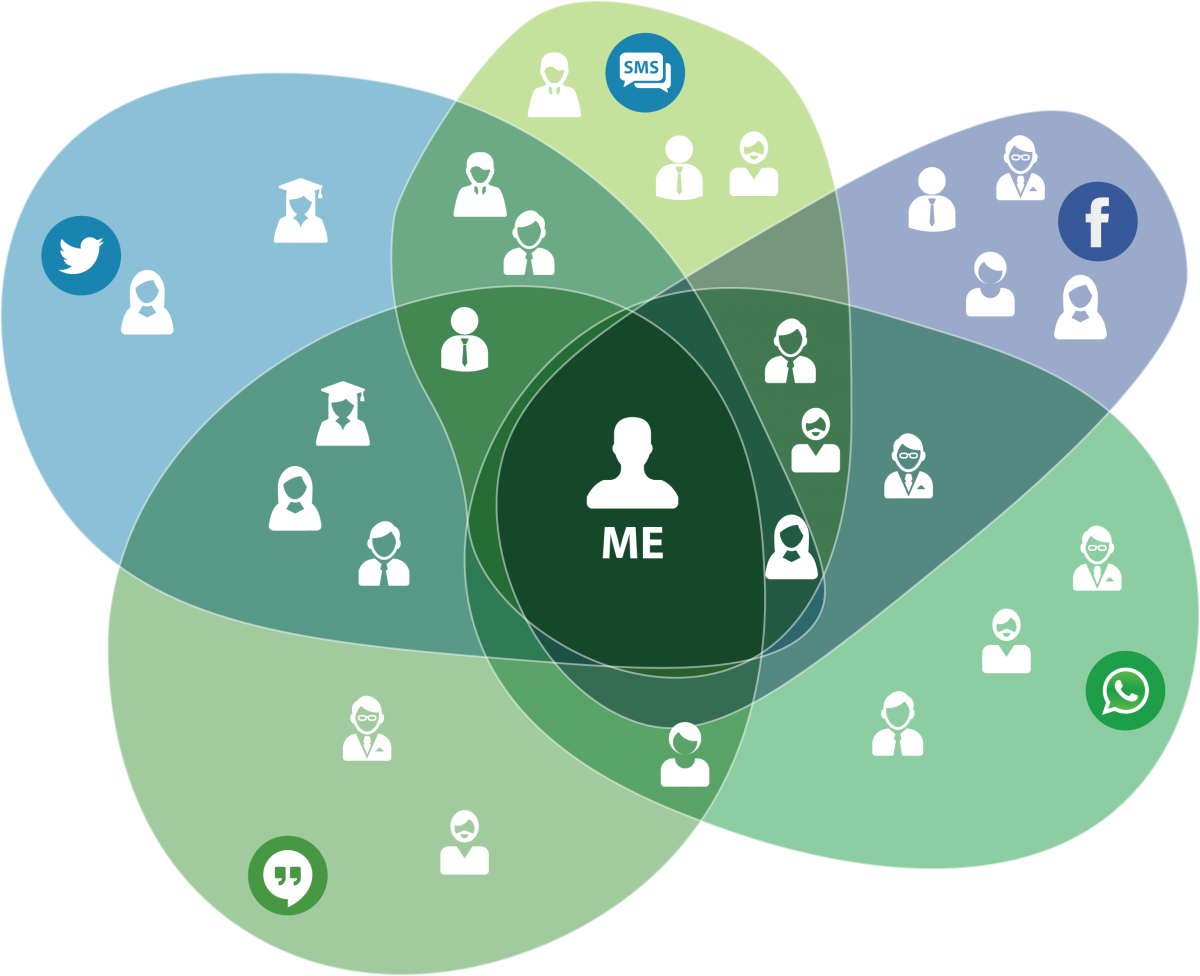Matrix.org Comms Federation
In his week as guest curator Rob Pickering of ipcortex now has a post by Amandine Le Pape who discusses WebRTC federation.
I’ve held a view for a long time that the world would be a better place if there were a widely used standard for messaging federation, so that I could for example have one universal public chat address on my business card just like I have a phone number and e-mail address. I know quite a few folks disagree with this, and think that it is a “feature” rather than a bug that they have to use a myriad of apps each with their own private chat space and no interoperability, but I think this is a big usability headache.
Like most things, there is an Internet standard for messaging interop: XMPP, but it doesn’t have the wide adoption of other standards like SMTP for e-mail, or HTTP for the web. In fact it suffered a bit of a body blow when Google dropped support for messaging interop via XMPP from its front line messaging products a couple of years ago – I wrote about this at the time. Whilst XMPP is a well documented protocol, it is over complex with many extensions to do fairly basic operations. A new initiative has emerged from the folks at Matrix which aims to produce a de-facto standard protocol for messaging interoperability – I wish them well and suspect that this is probably our last chance to sort this out. Here is what Amandine Le Pape from Matrix has to say…
Take a look at your smartphone. Chances are, among the various icons on the screen, there are quite a few messaging apps and apps with a messaging capability. Whether text, chat, calling or via video, every week brings a new app to download. We use all these different applications daily – LinkedIn for colleagues, Facebook for family, WhatsApp for the sports club, Viber for some international contacts, Skype for video and that is without even touching messages sent from within other apps.
The only point where these apps and the profiles on them converge, is on your phone. We then have to juggle what app connects me to what person, or holds the information you need. Matrix.org is a new open source and non-profit project aiming to fix the problem of fragmented IP-communications between devices, people and services with a very pragmatic and novel approach. Matrix defines a persistent data layer for the Web, with open federation, strong cryptographic guarantees, eventual consistency and push semantics. Like the Web, Matrix can be used for many purposes, from Instant Messaging to IoT, via VoIP and WebRTC. With it the “missing link” of interoperable calling between WebRTC silos becomes interoperable and as simple as a single HTTP PUT to invite the callee, and a single HTTP PUT for them to answer. Meanwhile, OTT messaging apps can finally federate by synchronizing their conversations into Matrix; letting users own their history and select their preferred app and service.
As an open source project, any developer can use Matrix (it’s all on Github) to easily create and host their own feature-rich real-time communication apps that openly interoperate with one another, or add such features to an existing service whilst building on the Matrix community of users. Existing communication services can also easily join in and integrate with the Matrix ecosystem, extending their reach while participating in this collaborative effort to break down the walls between communication silos.
Matrix is an open project and will stay so because for Matrix to achieve its mission of making all communications services interoperable we believe it needs to be truly open; giving people access to take all the code we produce to use and build on top of it. We need the trust and support of those who want to use Matrix in their own applications and startups and want to see an end to all walled garden applications and closed silos.
We firmly believe in doing what is right for the consumer and the internet user. As people begin to use interoperable communications tools, service providers will have to compete on the quality of their service, security and features rather than relying on locking people into their walled garden. Can you imagine using a phone network that only allowed you to call people on the same network? We genuinely hope that one day, Facebook, Whatsapp, BBM etc will all integrate with Matrix voluntarily.
Once consumers realise they can choose to use their favourite app, from their trusted app provider, and still be able to communicate with friends using competing apps and services, they will likely demand integration and interoperability.
Matrix is here to help foster innovation throughout the Internet. We are making communications safer, more ubiquitous and innovative. Generic messaging and data synchronization across the web will never be quite the same again. The project may well provide the disruption needed to change how real-time data is shared on the Internet, and usher in a new age of services which by default collaborate rather than compete. There is no doubt that a revolution of sorts has begun and Matrix intends to fan the flames.
As a company or an individual, whether you believe that today’s communications are fragmenting and need to change or not, check out the Matrix.org website or follow us on Twitter @Matrixdotorg. We also recently launched our ‘Matrix Console’ app which is free to download from the Google Play or Apple App Store.
Amandine Le Pape is the Co-founder and Business lead for Matrix.org
Previous posts from the ipcortex WebRTC week:
WebRTC – where are the real world applications?
Welcome to ipcortex WebRTC week on trefor.net
Check out all WebRTC post on trefor.net here.
